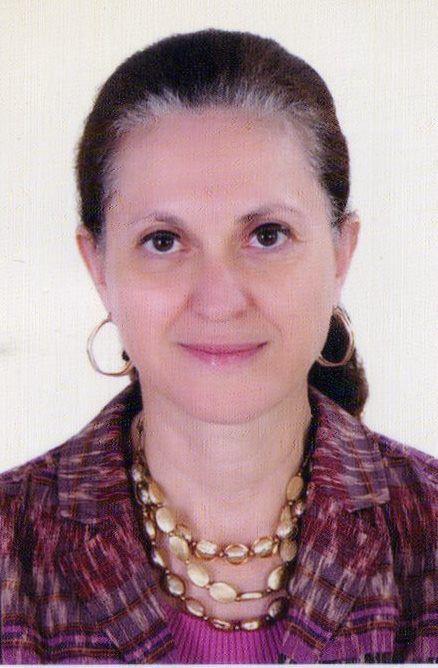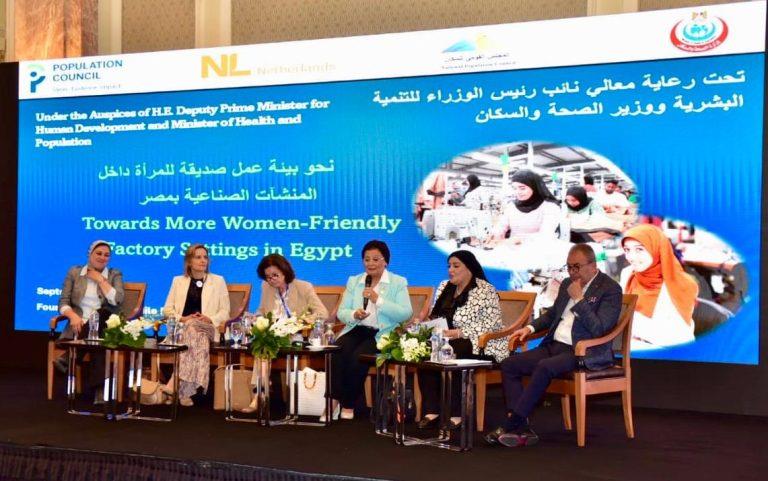
Empowering Workers: Impact Of 'Our Health Is Our Capital' Project In Egypt
A Collaborative Approach to Health
The Population Council in partnership with the Chamber of Apparel and Home Textile Industries and with the support of the Ministry of Health and Population (MOHP), and the Embassy of Netherlands in Cairo, implemented an intervention that combines raising awareness of family planning/reproductive health with on-site provision of family planning services. This intervention known as the“Our Health is Our Capital” project targets approximately 60,000 factory workers in 10 garment factories in El Amereya Free Investment Zone of Alexandria Governorate. Notably, around 60% of these workers are women, highlighting the project's commitment to addressing the specific health needs of female workers in the industrial sector.
During a recent conference titled“Towards More Women-Friendly Factory Settings in Egypt,” held under the auspices of Dr. Khaled Abdel Ghaffar, Deputy Prime Minister for Human Development and Minister of Health and Population, the Population Council presented the project's results. This event underscored the significance of integrating reproductive health into the workplace, making a step forward in the National Program for Egyptian Family Development.
Reproductive Health and Family Planning: A Necessity in Factories
The“Our Health is Our Capital” project aimed to raise awareness among factory workers about family planning and reproductive health. By dispelling myths and misconceptions about these topics, the initiative seeks to empower men and women to make informed decisions regarding their health and family size. Health leaflets were circulated at the factory's settings on family planning/reproductive health and general health/hygiene, in addition to information and counselling offered by the factory nurse and the on-site family planning and reproductive health services provided by the mobile clinics operated by the Ministry of Health and Population, which delivered free of charge services directly to workers. The mobile clinics not only received married women but attracted unmarried women and male workers too.
A crucial aspect of the project is the provision of on-site services and awareness-raising activities which covered topics such as contraceptive options, maternal health, and the importance of regular health check-ups. By creating a supportive environment for open discussions, the project encourages workers to seek the information and services they need without fear of stigma.
The impact of the project has been substantial. An impressive 18,500 male and female workers in ten factories benefited from these services. The results of the project revealed that the intervention was well received by factory workers, project staff and factory managers.
Economic Returns on Investment
One of the outstanding findings from a study conducted by the Population Council is the economic rationale behind investing in reproductive health services for factory workers in factory settings. For every Egyptian pound spent on raising awareness about family planning, a return of approximately four pounds can be expected. This return is achieved through a notable reduction in absenteeism and labour turnover-averaging 11% and 25%, respectively-ultimately leading to a 22% increase in productivity.
The economic implications extend beyond individual factories. As more women enter the workforce, the overall productivity and innovation levels within industries can improve. This not only enhances the bottom line for factory owners but also contributes to a more dynamic and competitive national economy.
Dr. Abla Alfi, Deputy Minister of Health and Population and Rapporteur of the National Population Council, emphasized the importance of improving reproductive health services and family planning practices. She highlighted the successful integration of the Presidential Thousand Golden Days Initiative for Egyptian Family Development with the National Population Strategy, aiming to enhance population characteristics and support working families.
Addressing Cultural Barriers
Despite the positive outcomes associated with the project, the integration of reproductive health services into factory settings is not without challenges. Cultural norms and societal expectations often dictate conversations around family planning and reproductive health, particularly in conservative communities. Due to privacy concerns, some married female workers were initially hesitant to seek services at the mobile clinics, while under-married girls may feel hesitant to discuss these topics, fearing judgment or misunderstanding from their peers or superiors.
To combat these barriers, factory nurses and female peer educators assured female workers that the mobile clinic was physically distanced from the workplace and was a private space for them to receive services that were delivered by a female doctor.
Engaging male workers in discussions about family planning is essential as well. Traditionally, these conversations have focused primarily on women, but involving men can lead to more balanced and supportive family planning decisions. Through open conservations, male peer educators and factory nurses were able to communicate the significance of spousal communication on reproductive goals which can help shift perceptions, creating a more collaborative approach to family planning decision-making.
A Model for Future Initiatives
The success of the“Our Health is Our Capital” project has prompted calls for its expansion across all Egyptian factories. Alfi underscored the need for fruitful cooperation with the private sector and civil society to replicate this model, emphasizing the importance of establishing nurseries too within factories. This would facilitate working mothers in balancing their professional and family responsibilities, thus contributing to overall family development.
The establishment of workplace nurseries is particularly significant. These facilities not only provide safe environments for children but also alleviate the stress many working mothers face in finding childcare. With the support of their employers, these women can focus on their work, knowing their children are cared for close by.
Expanding Workers' Health Program
Dr. Nahla Abdel Tawab, the Population Council's Country Director, stressed the necessity of expanding workers' health programmes to address women's broader reproductive health needs such as antenatal childbirth and postnatal care, detection, prevention and management of reproductive cancer, combating sexual and gender-based violence. Enhancing these services would not only improve health outcomes but also significantly increase women's participation in the labour market, ultimately boosting the national economy.

Dr Nahla Abdel Tawab
Moreover, male workers' reproductive health issues should not be overlooked, she added. Men make up a majority of workers in some industries and have a key role to play in decisions related to reproduction and childbearing.
Abdel El Tawab explained that gender-responsive mechanisms are also needed for the provision of reproductive health services for both men and women in various factory settings. She also emphasized that the role of the factory infirmary should be enhanced to provide more services beyond just first aid.
The Role of Factory Owners
Factory owners play a crucial role in the success of initiatives like“Our Health is Our Capital.” Dr. Mohamed Abdel Salam, President of the Chamber of Apparel and Home Textile Industries, noted that investing in reproductive health services can yield significant returns for factory owners. By reducing absenteeism and labour turnover, these initiatives lead to increased productivity and overall workplace satisfaction.
Moreover, factory owners prioritising worker health and well-being foster a positive organizational culture. This can enhance employee loyalty and motivation, reducing recruitment and training costs associated with high turnover rates. A healthy and engaged workforce is a competitive advantage that can differentiate businesses in a challenging economic landscape.
Looking Ahead: Challenges and Opportunities
While the“Our Health is Our Capital” project has achieved notable success, several challenges remain. Funding and resource allocation are critical factors that can impact the sustainability of such initiatives. As demand for services increases, ensuring that adequate resources are available will be paramount.
To address these challenges, continuous monitoring and evaluation of the project's impact will be essential. By analyzing data and gathering feedback from participants, stakeholders can identify areas for improvement and make necessary adjustments. This crucial approach will enhance the effectiveness of the project and ensure its long-term success.
Towards a Healthier Future
The“Our Health is Our Capital” project stands as a testament to the potential for positive change when health services are integrated into the workplace. By prioritizing reproductive health and family planning for factory workers, Egypt is addressing critical health issues while promoting economic growth and empowering women.
As the initiative gains recognition for its success, the call to expand such models across all factories in Egypt becomes increasingly urgent. With collaborative efforts between the government, private sector, and civil society, Egypt can pave the way for a healthier, more productive workforce, ultimately leading to a more prosperous future for all its citizens.
The lessons learned from the“Our Health is Our Capital” project can serve as a blueprint for similar initiatives, showcasing the profound impact that health and empowerment can have on labour markets and national economies. The journey towards a healthier and more equitable workforce is a collective endeavour that requires ongoing commitment, innovation, and partnership across sectors. In doing so, Egypt can continue to advance toward a future where health, prosperity, and equality go hand in hand.
By embracing this holistic approach to workforce health and family planning, Egypt is not only setting a precedent for other nations but also ensuring that its economic future is rooted in the well-being of its people. In the long run, investing in health services for workers is not merely a social responsibility; it is a strategic investment in the country's economic vitality and sustainability.

Legal Disclaimer:
MENAFN provides the
information “as is” without warranty of any kind. We do not accept
any responsibility or liability for the accuracy, content, images,
videos, licenses, completeness, legality, or reliability of the information
contained in this article. If you have any complaints or copyright
issues related to this article, kindly contact the provider above.



















Comments
No comment